I’ve always been very proud of my dad. I won’t go into all the dad stuff he did. He was a terrific dad but I’ll save that for the personal side of my life. Instead I’ll tell you what I know about his military career.
Up front, I was 8 years old when he retired, so to my memory he got up every morning and went to work and at the end of the day came home. Those days that I remember, he was assigned to Carlisle Barracks, PA as a pilot. His job was to fly lecturers and VIPs from Washington to the US Army War College and back. Nice 9 to 5 job for an Army pilot, worked well for family life. But let me back up.
My dad joined the Navy in March of 1945 at the age of 17. While he had very high test scores, he was a high school drop out so didn’t qualify for much. He ended up a radar operator. He finished his training ready to go fight for his country shortly after the war ended. I don’t think he was disappointed that he didn’t see combat, but I do know that he never really considered himself a World War II veteran. Everybody else did but he never claimed it himself. He never really talked much about his days in the Navy. I’m pretty sure he didn’t like it because 60 years later he could tell you to the second exactly how long he was in the Navy.
I’ve found some interesting things looking at his DD214s. He’s listed as serving 3 years 8 months 15 days in the Navy with an honorable discharge. He’s shown entering the Army with the rank of corporal after working for around 6 months as a clerk at the Pensacola Naval Air Station. He is then shown reenlisting 2 years 8 months 12 days later at the regular Army rank of Master Sergeant with a commission as a 2nd Lt. in the Army Reserves. His date of rank for MSG was almost exactly 2 years after enlisting, and of those 2 years 8 months 12 days 2 years 4 months were in Korea. He didn’t talk much about his time in Korea, mostly about how cold it was. I know he did a stint as a drill instructor, then senior NCO of an air defense artillery installation in Chicago, where he met my mom. He then ended up as advisor to the Kansas National Guard, spending his weekends driving back and forth to Chicago to date my mom until they got married. Following that it was helicopter flight school and deployment to Germany as a WO1 pilot. What do I know about his time in Germany? It was cold (there was a reason he moved to Florida when he retired), and apparently in 1953 commissioned officers didn’t care for the idea of warrant officer pilots. Not much more than that.
His time in Germany being a bit of a downer, he resigned from the Army and worked as a civilian helicopter pilot. There wasn’t a whole lot of opportunity for civilian helicopter pilots in the 1950’s, there weren’t that many helicopters back then, so he ended up flying geological surveys in the Canadian bush, which, believe it or not, was cold. He had some good stories from that, like the geologist he flew around for a while who listed every rock sample he picked up as FRDK which turned out to mean “funny rock don’t know”. For a while there were various terrain features in northern Canada named after my family members since the geologists were running out of names. Not sure if the names stuck, but if you find a Lake Eloise in northern Canada it’s named after my mom.
Then back in the Army, more training for fixed wing pilot, then instructor pilot training, then a stint as an instructor in Mineral Wells, TX, then a tour in Viet Nam with the UTT and the 145th Combat Aviation Bn flying the early Huey gunships. Again, he didn’t talk much about that war. I know they painted eyes on the underside of the tail boom. The VC would shoot at the eyes which would let them know they were under fire without bullets coming too close to the crew. His policy was the ammo on board was there to be shot at VC so if he took fire every rocket and machine gun round on board was going back, they could always go rearm. He told me his scariest moment was when he almost accidentally shot down an OV-1 Mohawk that flew by below him as he was making a gun run (there was a bit of a confrontation with that pilot later). They ran out of rockets so borrowed some from the Air Force and the first one he fired went spiraling up and behind him. Apparently there was supposed to be a crimp in the nozzle that added stability that wasn’t there. And a guy in his unit had a pet monkey that liked to throw crap.
Following Viet Nam he was sent to Ft. Rucker as an instructor pilot, then was sent to Embry Riddle in Daytona Beach to get a degree in Aeronautical Science. At some point he also picked up certification as an air crash investigator from the NTSB.
My Dad was a very positive person. He endured a lot of bad things in his life, but he stayed positive and just let them go. Don’t get me wrong, my dad complained. He hated the cold, and would complain about being cold. But that was pretty much it.
Rest In Peace
Norman F. Cates
11-28-27
5-1-17

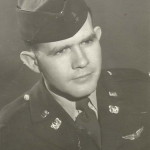
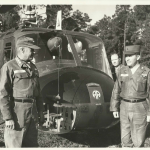
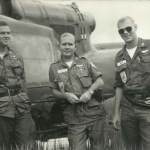
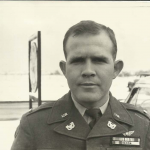
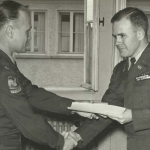
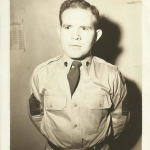
 Follow
Follow